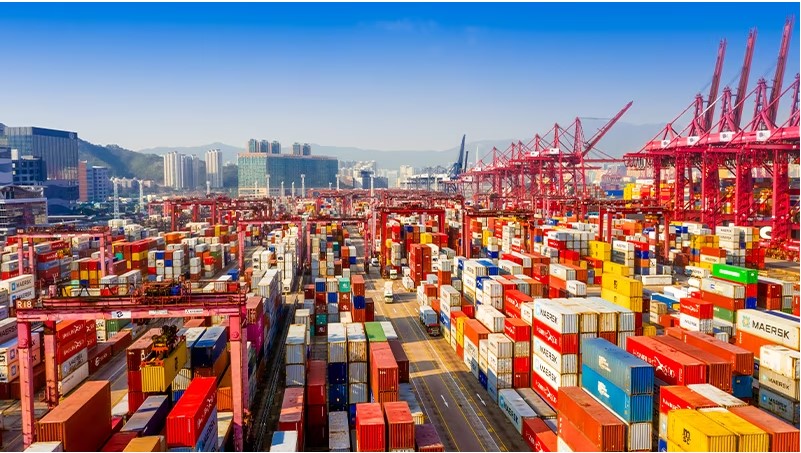Goldman Sachs, a leading global investment bank, has projected that Nigeria will be the fifth-largest economy in the world by 2075, with a GDP of $13.1 trillion. This is a significant achievement for Nigeria, which is currently the 27th-largest economy in the world.
There are a number of factors that are contributing to Nigeria’s rapid economic growth. First, Nigeria has a young and growing population. By 2075, Nigeria is expected to have a population of over 400 million people, making it the third-most populous country in the world. This large population will provide a large workforce and consumer base for Nigeria’s economy.
Second, Nigeria is rich in natural resources, including oil, gas, and minerals. Nigeria is the largest oil producer in Africa and the sixth-largest oil producer in the world. Nigeria’s oil and gas exports generate billions of dollars in revenue each year.
Third, Nigeria is increasingly becoming a hub for technology and innovation. Nigeria is home to a number of successful fintech startups and tech companies. Nigeria’s growing tech sector is expected to play a major role in the country’s future economic growth.
World's biggest economies in 2075, projected by Goldman Sachs:
🇨🇳 China: $57 trillion
🇮🇳 India: $52.5 trillion
🇺🇸 United States: $51.5 trillion
🇮🇩 Indonesia: $13.7 trillion
🇳🇬 Nigeria: $13.1 trillion
🇵🇰 Pakistan: $12.3 trillion
🇪🇬 Egypt: $10.4 trillion
🇧🇷 Brazil: $8.7 trillion…— World of Statistics (@stats_feed) October 11, 2023
However, there are a number of challenges that Nigeria needs to address in order to achieve its full economic potential. These challenges include corruption, poverty, and infrastructure deficits. Nigeria also needs to diversify its economy away from oil and gas.
Despite these challenges, Nigeria is well-positioned to become one of the world’s largest economies in the coming decades. With its young and growing population, abundant natural resources, and growing tech sector, Nigeria has the potential to achieve rapid economic growth.
Here are some specific things that Nigeria can do to achieve its full economic potential:
- Invest in education and skills development: Nigeria needs to invest in educating and training its workforce so that they can meet the needs of the growing economy.
- Improve infrastructure: Nigeria needs to improve its infrastructure, including roads, bridges, and power grids, in order to support economic growth.
- Diversify the economy: Nigeria needs to diversify its economy away from oil and gas. This can be done by investing in other sectors, such as agriculture, manufacturing, and tourism.
- Reduce corruption: Corruption is a major obstacle to economic growth in Nigeria. Nigeria needs to take steps to reduce corruption and improve transparency in government.
If Nigeria can address these challenges, it has the potential to become one of the most prosperous and influential countries in the world.
Here are some additional thoughts on the implications of Nigeria becoming a top 5 economy in the world:
- Increased global influence: Nigeria would have a greater voice on the world stage and would be able to play a more leading role in global affairs.
- Improved quality of life for Nigerians: As the economy grows, Nigerians would have access to better healthcare, education, and other essential services.
- More opportunities for Nigerians: There would be more jobs available and more opportunities for Nigerians to start their own businesses.
- Increased trade and investment: Nigeria would become a more attractive destination for foreign trade and investment.
- More tourism: Nigeria’s rich culture and natural resources would attract more tourists from around the world.
However, it is important to note that there are also some potential challenges associated with rapid economic growth. For example, Nigeria would need to ensure that its infrastructure and social safety nets are able to keep up with the growing population. Additionally, Nigeria would need to be careful to avoid the pitfalls of inequality and environmental degradation that have often accompanied rapid economic growth in other countries.
The potential implications of Nigeria becoming a top 5 economy in the world are overwhelmingly positive. However, it is important for Nigeria to carefully manage its growth in order to ensure that it benefits all Nigerians.
Here are some specific things that the Nigerian government can do to mitigate the challenges associated with rapid economic growth:
- Invest in infrastructure: The Nigerian government needs to invest heavily in infrastructure, such as roads, bridges, and power grids, in order to support economic growth and ensure that all Nigerians have access to essential services.
- Develop social safety nets: The Nigerian government needs to develop social safety nets to protect the poor and vulnerable from the negative impacts of economic growth.
- Promote sustainable development: The Nigerian government needs to promote sustainable development to avoid the pitfalls of inequality and environmental degradation.
By taking these steps, the Nigerian government can help to ensure that the country’s rapid economic growth benefits all Nigerians. Read Something Similar












